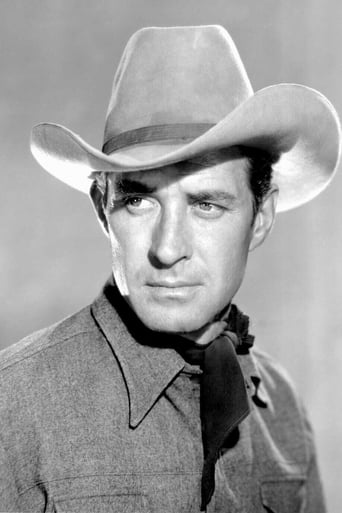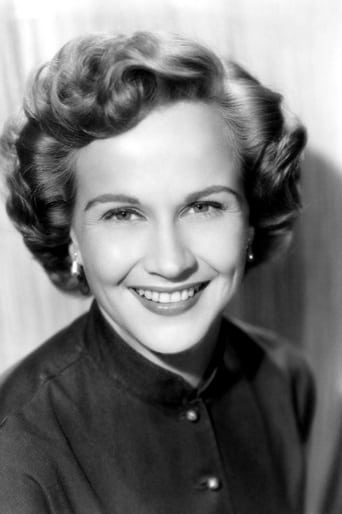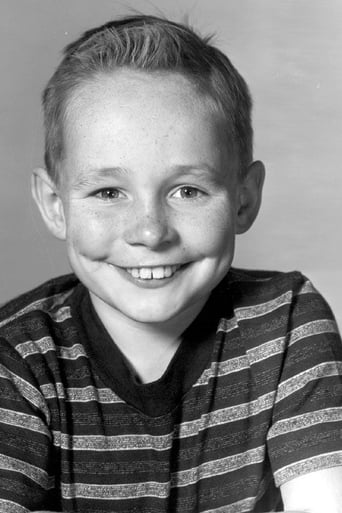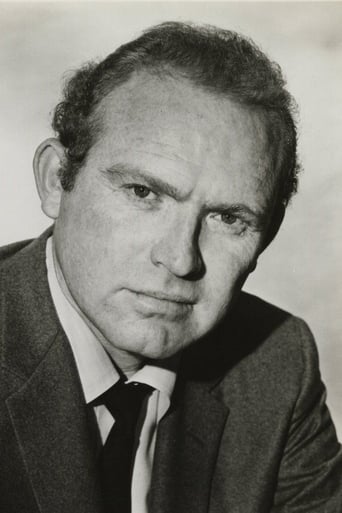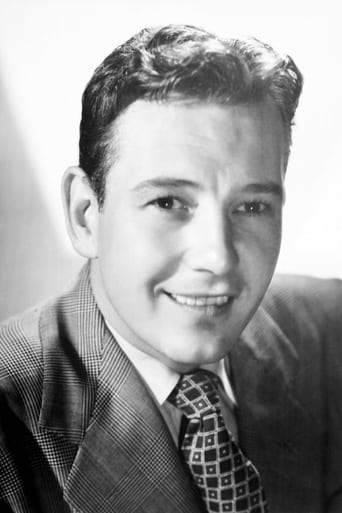Freaktana
A Major Disappointment
Gurlyndrobb
While it doesn't offer any answers, it both thrills and makes you think.
Micah Lloyd
Excellent characters with emotional depth. My wife, daughter and granddaughter all enjoyed it...and me, too! Very good movie! You won't be disappointed.
Guillelmina
The film's masterful storytelling did its job. The message was clear. No need to overdo.
drystyx
This Western is a great example of what was good in old fifties Westerns, compared to the Hollywood tripe the control freaks shoved down our throats after about 1965.It's a Western murder mystery complete with fantastic scenery. The only drawback is that the hero's outfit never gets dusty. But that's okay.In the mid sixties, the control freaks wanted to "fix" what wasn't broke by trying to claim their realistic dust was enough for realism, but they gave the worst of both worlds by giving us the most idiotic one dimensional caricatures ever.Here, we go through a more realistic series of characters. No "super demi god" Greek characters, though the hero has the demi god attributes. Still, he isn't traditional Greek hero. He doesn't butcher people for no motivation the way Odysseus and other Homeric legends did.In effect, the hero here, while being much like a small portion of the better fifties heroes, was actually an "anti-hero", a truer "anti-hero" than we had ever gotten. The fifties gave us a small segment of this man who actually attempted to have some morality. Before and after the fifties, we got almost none of this. And to be honest, even in the fifties, this was not a majority of heroes, even in the Westerns. John Wayne, Audie Murphy, William Holden, even Joel and Randolph usually played "outlaws reforming" more than "guys seeking good from an early age".Now, the story. An old miner is held up by three masked men. Two of them are homicidal gun crazy brothers, who issue his mortal wounds at the cost of his own life. The third is the first to be shot, but not seriously. He winds up being one of the five names the old man writes in his final will and testament. He makes this known in a final gasp to another old friend who hears the shots and comes by to find him."Quit it Judas" becomes a great switch ending line in this film that actually shows lots of character in its characters. Unlike the "control freak era" of Westerns, we get much more credible characters instead of the "bubble boy Beavis and Butthead" spaghetti nonsense of people acting like the smell of guts and corpses is good to drink coffee to.Why does this matter? Because we get the impression there is more action than there really is. We are fascinated and drawn in by this collection of characters, and fooled into thinking there is more action, even though there is so little bloodshed, and even less cockeyed bravery in the face of guns.While the control freaks of the late sixties onward would make idiotic Westerns where everyone killed everyone else (makes you wonder how the West could have a population over "1"), their "hate mongering" became tedious and boring compared to what we get in real Westerns like this.
Spikeopath
Money, Women and Guns is directed by Richard H. Bartlett and written by Montgomery Pittman. It stars Jock Mahoney, Kim Hunter, Tim Hovey, Gene Evans, Tom Drake and Lon Chaney Jr. Music is by Joseph Gershenson and CinemaScope photography is by Philip Lathrop. A strange bag of oats is this one. The makers have offered up CinemaScope and parked up at Lone Pine to film it. The colour lensing is beautiful, while the story has promise unbound, yet it still struggles to come out in credit.Story sees an old prospector murdered at pic's start (we don't see who done the deed), so in comes detective Silver Ward Hogan (Mahoney). Hogan sets out to find the killer and also an heir to the dead man's fortune.And thus we have a sort of Hercule Poirot in the Wild West. Which is fun, and the mystery element is engaging and constantly strong. Yet the Scope potential is barely utilised, action is in short supply, and the acting performances - whilst adequate - reek of easy paycheck time.Not a waste of time by any stretch of the imagination, but it sure as hell is frustrating. 6/10
kevin olzak
1958's "Money, Women and Guns" was a somewhat modest color B-Western from Universal, where Jock Mahoney was coming off his one science fiction title, "The Land Unknown." Elderly prospector Ben Merriweather (Edwin Jerome) is bushwhacked by a trio of masked marauders, two of which are killed in a brief shootout. In his final moments, the dying man writes out his last will and testament, leaving his wealth to a half dozen beneficiaries, and it's up to Mahoney's frontier detective 'Silver' Ward Hogan to track each one down. One is played by William Campbell, an ex-con struggling to go straight alongside young wife Judi Meredith (both worked for Roger Corman in 1966, Campbell in "Track of the Vampire" and Meredith in "Planet of Blood"). The youngest is David Kingman (Tim Hovey), a little boy whose only contact with Merriweather was a conversation about Santa Claus; his widowed mother (Kim Hunter) takes a shine to the wandering loner that David worships. One self contained vignette teams James Gleason's Henry Devers with Lon Chaney's Art Birdwell; Devers was Merriweather's former prospecting partner, who sends his poker playing partner Birdwell into town to cash his $50,000 beneficiary check. Jeffrey Stone followed up with "The Thing That Couldn't Die," while Phillip Terry did "The Leech Woman" (Tom Drake worked with Chaney in 1956's "The Cyclops" and 1966's "House of the Black Death"). As for Chaney, this innocuous little Western marked his final credit for Universal, the studio that cast him adrift following 1945's "House of Dracula," calling him back on only four occasions, the first three being 1948's "Abbott and Costello Meet Frankenstein," 1951's "Flame of Araby," and 1952's "The Black Castle" (he previously worked for director Richard H. Bartlett in 1955's "The Silver Star," for Lippert Pictures).
milwhitt702
This was a fair western but Jock and Tim Hovey worked well together. He finally got his chance to show his stuff. Actually, my mom's favorite western was "Slim Carter" about a man changing his ways over a kid. Mr. Mahoney was in a lot of movies but for a long time you never saw his face, just his riding skill on a white horse. Eventually he was shown as a Texas Ranger chasing the Durango Kid over rooftops and finally jumping off a roof onto the white horse. Part of the time Jock was literally chasing himself. My favorite DK series was "Bandits of El Dorado". There were so many well known names..John Dehner,Fred Sears, Lewis, and of course...Clayton Moore, whose voice I recognized instantly as the future Lone Ranger. In the movie of this subject, Jock looked like a powerful man, large shoulders small waist, and could ride a horse like he was part of it. Thanks for letting me share.
